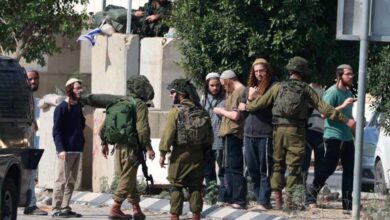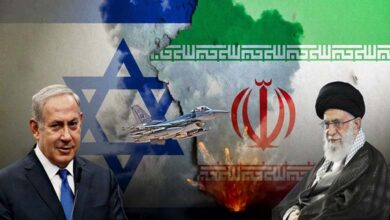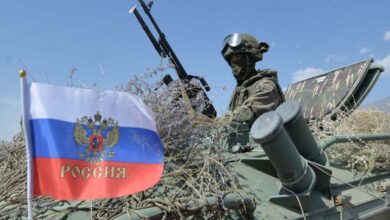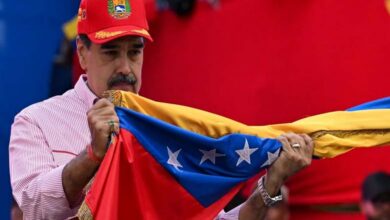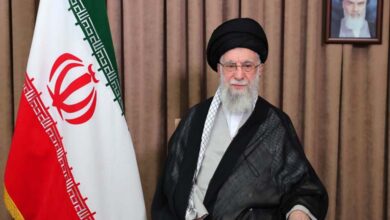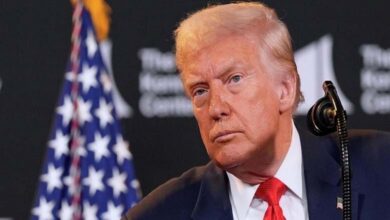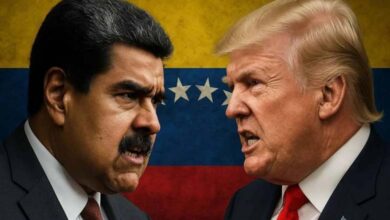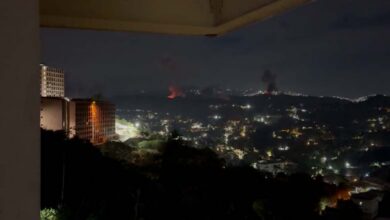Washington Accuses, while al-Burhan’s Government Denies the Use of Chemical Weapons
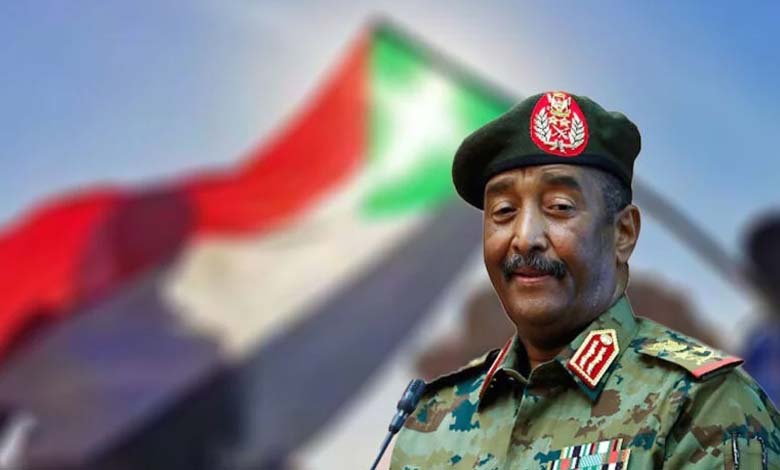
Sudan’s Foreign Minister asserts that the army does not possess chemical weapons, amid questions regarding the nature of foreign support received by al-Burhan to secure rapid military advances in recent months.
On Friday, Sudanese Foreign Minister Ali Youssef denied what he called “American allegations” that Sudan’s army possesses chemical weapons. However, the rapid military advances made by the army in recent months have raised numerous questions about the extent of foreign support received by Abdel Fattah al-Burhan, head of the Sovereignty Council, particularly from Iran.
-
Has al-Burhan Reached the Expiration Date of the Muslim Brotherhood?
-
Washington Pressures Al-Burhan by Insisting on Geneva Talks as a New Model for Peace
During a discussion session titled “Politics and the Humanitarian Crisis” at the Munich Security Conference, Youssef insisted that the accusations against his country regarding the use of chemical weapons in the ongoing war were “false”.
“The Sudanese army has not committed any violations or breaches in this war against the Rapid Support Forces, and there is no evidence supporting such accusations. The Sudanese army does not possess chemical weapons, and any claims to the contrary are baseless,” he declared.
On January 16, the U.S. Treasury Department imposed sanctions on al-Burhan, citing his forces’ attacks on civilians.
-
Attempted Assassination of al-Burhan: Internal and External Escalation in Sudan?
-
The Attempted Assassination of al-Burhan: Between Allegations of Foreign Intervention and Internal Tactics
At the same time, The New York Times published a report, citing four anonymous U.S. officials, claiming that the Sudanese army had used chemical weapons at least twice during battles for control of the country.
Earlier media reports had also circulated video footage allegedly proving the army’s use of chemical weapons, showing soldiers wearing specialized masks used in handling prohibited arms.
According to recordings published by some media outlets—though not confirmed by reliable sources—Sudanese forces were seen launching gas capsules, suspected to be internationally prohibited mustard gas bombs, into residential areas controlled by the Rapid Support Forces.
-
The Attempted Assassination of al-Burhan Sparks Debate on the Involvement of the Islamic Movement and the Army
-
Al-Burhan’s Desire to Step Down Reveals the Army’s Desperation to Win the Battle
At the time, the Sudanese Foreign Ministry condemned the U.S. sanctions against Al-Burhan, describing them as “unethical” and asserting that they lacked “the most basic principles of justice and objectivity.” It further stated that the decision to impose sanctions “only reflects confusion and a weak sense of justice.”
The Sudanese army has recently achieved significant battlefield victories, reportedly with military support from various countries, including Iran and Turkey. This foreign backing is believed to have enabled the army’s recent military gains, which in turn explain Al-Burhan’s firm stance against peace negotiations.
According to regional and local officials, explosive drones have helped the Sudanese army compensate for losses sustained in battles against the Rapid Support Forces, allowing the army to regain control of areas in Khartoum and Omdurman.
-
Abdel Fattah al-Burhan: Involved in War Crimes and Subject to the Muslim Brotherhood’s Agenda
-
Sudan: Al-Burhan Rejects Dialogue Initiatives
Tehran’s motivation for arming the Sudanese army is seen as part of its broader strategy to expand its military influence in the Middle East. Iran already supports armed groups in Gaza, Lebanon’s Hezbollah, the Houthis in Yemen, as well as factions in Syria and Iraq.
During the panel discussion at the Munich Security Conference, the Sudanese Foreign Minister, in turn, accused the Rapid Support Forces of “committing violations and crimes against the Sudanese people,” an allegation that the RSF routinely denies.
Attempting to counter the accusations against the army, the minister added, “The Rapid Support Forces burned down the National Museum, which housed Sudan’s history, as well as the National Archives, which contained Sudan’s records from the past century.”
-
Al-Burhan Rejects All Mediation Efforts to Resolve Sudan Crisis for Personal Gains
-
Have al-Burhan’s supporters lost faith in the Sudanese Army?
He warned that “there are those who seek to destroy Sudan and erase it,” without specifying any particular entity.
Despite Al-Burhan’s rejection of all regional and international peace initiatives aimed at ending the war, the minister claimed that his government is pursuing peace and has proposed a roadmap for stabilizing the country. He stated, “Last Sunday, a roadmap was announced that includes the formation of a civilian-led government for a transitional period of one to three years, headed by a civilian prime minister, with ministers selected from independent experts, culminating in general elections in which the people will participate.”
-
The Muslim Brotherhood and Al-Burhan lose the battle… The Army is in Turmoil
-
The Brotherhood Pressures Al-Burhan to Pass the “Popular Resistance” Law: Details
Since mid-April 2023, the Sudanese army and the Rapid Support Forces have been engaged in a conflict that has resulted in over 20,000 deaths and displaced nearly 15 million people, according to the United Nations and local authorities. However, research conducted by American universities estimates the death toll to be around 130,000.
Meanwhile, global and UN calls to end the war are growing louder in an effort to prevent Sudan from descending into a humanitarian catastrophe. The ongoing conflict, which has now spread to 13 of Sudan’s 18 states, has already pushed millions toward famine and death due to food shortages.


